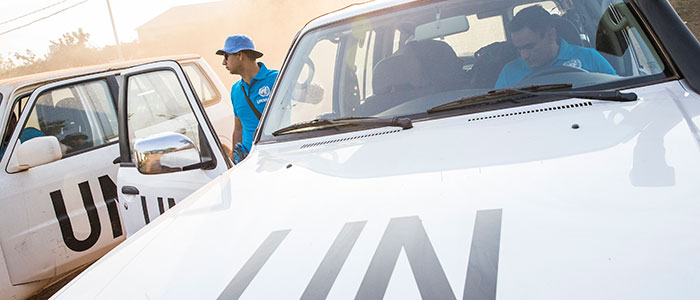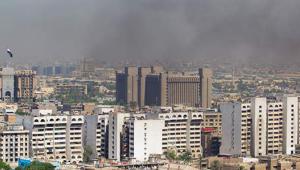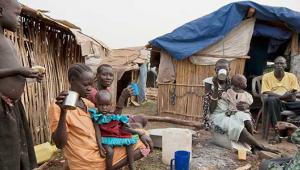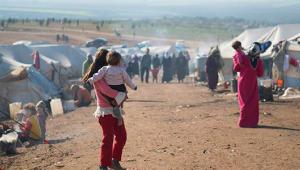UN car convoy aid delivery.jpg

UN vehicles
Aid convoys carrying life-saving health and food supplies yesterday reached the town of Madaya, where 42,000 residents have been trapped by pro-government forces, and the towns of Kafraya and Foah, where opposition forces have kept a further 20,000 civilians under siege since October.
The 49-truck convoys relieved a situation that United Nations officials described last week as “horrendous” and “ghastly”, as reports emerged that adults and children alike were dying of starvation, forced to eat plants, insects and cats and forage for food in grounds littered with landmines.
Médecins Sans Frontiéres has said 23 people starved to death in Madaya in December, six of them children, where photos of emaciated corpses and individuals suffering from malnutrition and stories of hardship from people within the town sparked an international outcry.
The sieges had lasted months, cutting the towns off from commercial and humanitarian sources of food and medical supplies. Reports from the town said that the price of rice spiralled astronomically, with 1kg costing as much as $100.
The inter-agency convoy, organised by the UN, the International Committee of the Red Cross, the Syrian Arab Red Crescent and other partner agencies, brought health, nutrition and food supplies as well as blankets, winter clothes, jerry cans and household items.
Stephen O’Brien, head of humanitarian aid for the UN, said there were some 400 people in Madaya that could die unless evacuated immediately.
The convoy eventually reached Madaya after the Assad government approved the UN’s request to send aid– marking just the second time the regime has allowed the organisation access to the area in recent months despite relentless requests.
Both sides of the conflict, but largely regime forces and extremists such as Islamic State, have used blockades in a bid to force enemies to surrender. Residents reported being unable to leave Madaya since the siege began due to regime sniper fire or minefields that surrounded the town.
The UN said that it and its humanitarian partners are equally concerned about the 400,000 people currently living in 15 besieged locations in Syria without access to aid.
Overall, it said, 4.5 million people in the country are living in hard-to-reach locations.
In a statement issued today, Tobias Ellwood, UK minister for the Middle East, said the “UN Security Council is clear that the use of starvation of civilians as a method of combat, including the besiegement of popular areas, is unacceptable”. UN officials have noted that the deliberate starvation of citizens amounts to war crimes.
“Last year just 10% of UN convoy requests to besieged areas were approved by the Assad regime,” Ellwood continued.
“The international community must do all it can to pressure the Assad regime to lift sieges in place across Syria and sustain humanitarian access.”
Oxfam and other leading aid agencies also released a joint statement reiterating the point that only a complete end to the sieges altogether with guarantees for sustained aid deliveries alongside humanitarian services will alleviate the crisis in these areas.
While the UN said yesterday’s delivery will provide food for up to a month, the agencies warned this one-off permission to deliver will be insufficient given the levels of malnutrition in the town.
CARE International, Handicap International, the International Rescue Committee, the Norwegian Refugee Council, Oxfam, Save the Children, Syria Relief and Development and World Vision have all called on parties to the conflict to end the siege of civilian areas, ensure permanent humanitarian access and compliance with UN Security Council resolutions.
Peace talks between government and some rebel forces are scheduled to kick off in Geneva on 25 January in an effort to end nearly five-years of a conflict that has had disastrous effects within the country and beyond.













